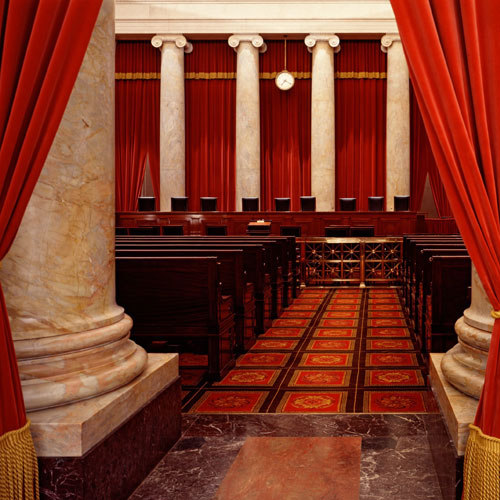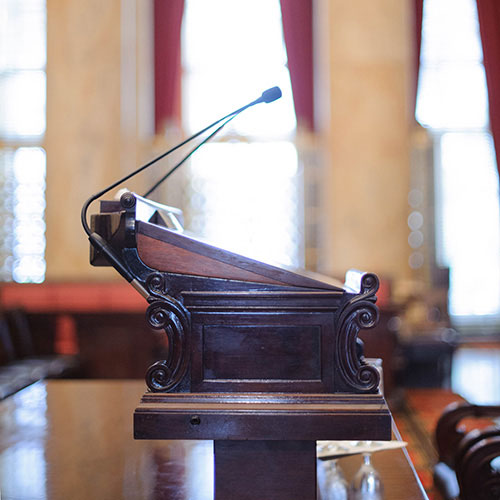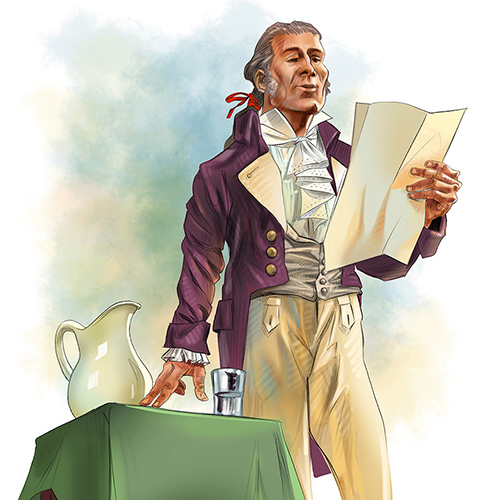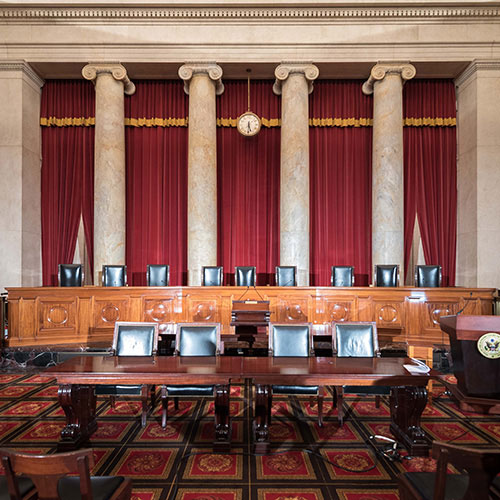Source: Buffalo Magazine
Author: Janet Gramza
‘Chance of a lifetime:’ BPS teacher Gary Crump attends Supreme Court Institute
When Gary Crump earned his law degree from Case Western Reserve University in 1990, he planned to be a lawyer. Instead, during years of paralegal work in criminal defense, he experienced the heartbreak of seeing Black teens sentenced to long jail terms for taking the wrong path.
Crump, who grew up in a South Bronx housing project, decided he wanted to empower young people of color to pursue education as a path to success.
In 2021, he completed the University at Buffalo’s Teacher Residency Program, an accelerated certification that places student teachers in Buffalo Public School classrooms for a full school year in preparation to lead their own classrooms in the city for at least three years.
That is how Crump ended up at the Supreme Court Chambers in Washington, D.C., to observe the nation’s highest court – not as a lawyer, but as a teacher.
Crump, who teaches social studies at Frederick Law Olmsted School in Buffalo since completing the UB program, won a spot at the 2024 Supreme Court Summer Institute held by Street Law and the Supreme Court Historical Society.
The six-day program gives social studies teachers experience, strategies and content “to broaden the way they teach about the U.S. Supreme Court and its cases,” according to Street Law’s website.
He flew to D.C. June 12 and spent the week observing and picking the brains of Supreme Court experts with 29 other teachers from around the nation. Another 30 teachers attended the following week. The one other teacher from New York told Crump she had applied three times before finally getting in.
The next day they experienced the high security (armed guards, electronic devices, two metal detectors and wanding) and complete silence required in the Supreme Court chambers.
Crump said the chamber was packed with lawyers who argued before the court leading up to three decisions issued that day. Justice Brett Kavanaugh read the court’s decision upholding access to the medical abortion pill mifepristone, which he wrote.
Then Justice Clarence Thomas read two decisions he had written, one ruling that Donald Trump’s name could not be trademarked on an anti-Trump T-shirt and the other a ruling that may make it easier for employers (in this case Starbucks) to fire employees trying to organize unions.
Crump’s cohort got to question CNN Supreme Court reporter Kimberly Robinson and attorney David Casazza, former law clerk to Justice Samuel Alito, who offered “insider information” such as the tradition that the youngest justice, currently Ketanji Brown Jackson, gets the job of ordering lunch for the court.
They also met Chief Justice John Roberts’ counsel, Robert Dow, and toured an exhibit on school desegregation highlighting the “Little Rock Nine,” Black students who integrated the Little Rock schools in Arkansas in 1957.
Crump had taught the topic to his eighth graders using a book called “Little Rock Girls,” he said. “I was really moved by that.”
He even got to act the role of a justice in a moot court case at Georgetown University Law Center using the 2022 case of O’Connor-Ratcliff v. Garnier, which decided that school board members who blocked citizens from the board’s social media violated their First Amendment rights.
As far as Crump can tell, he is the first BPS teacher to attend the institute, and he intends to share what he learned.
He said the experience will raise his teaching on the Judicial Branch of the U.S. government to a higher level, and he has been asked to lead professional development sessions on the Supreme Court for fellow teachers in the fall.
He also hopes to form a mock trial or moot court team at the middle school level to get students interested in law as practitioners, not violators, at an early age.
“It was a phenomenal, life-changing experience for me, and I do not intend to let this opportunity grow cold,” he said. “I want to use this experience to move the needle on behalf of my students.”




